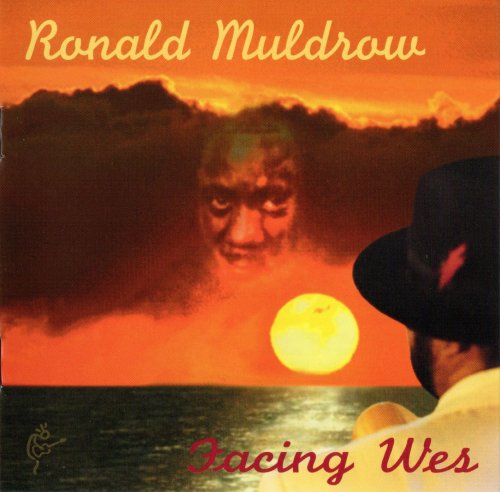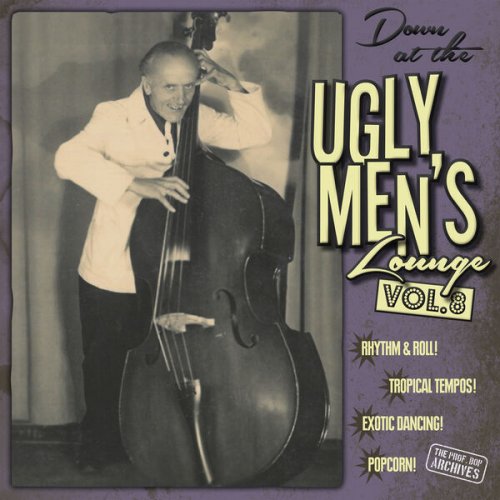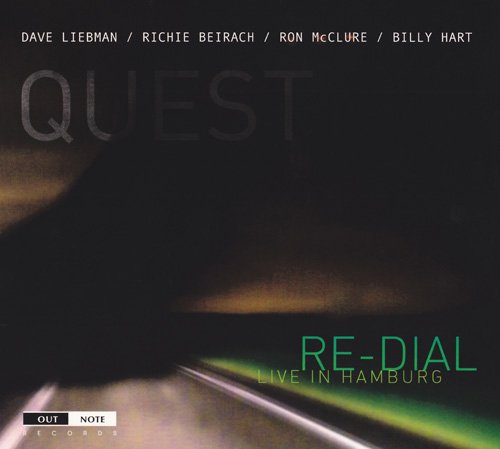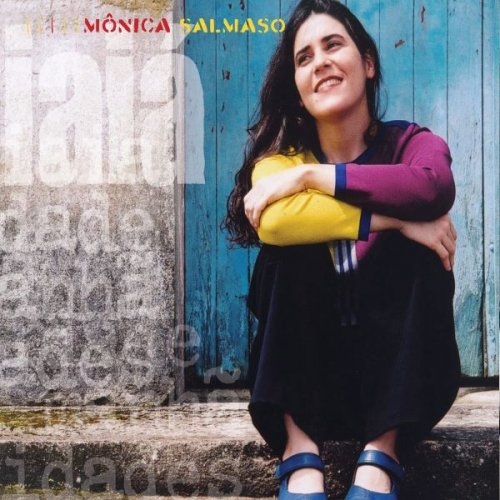Van Dyke Parks - Jump! (Reissue) (1984/1990)
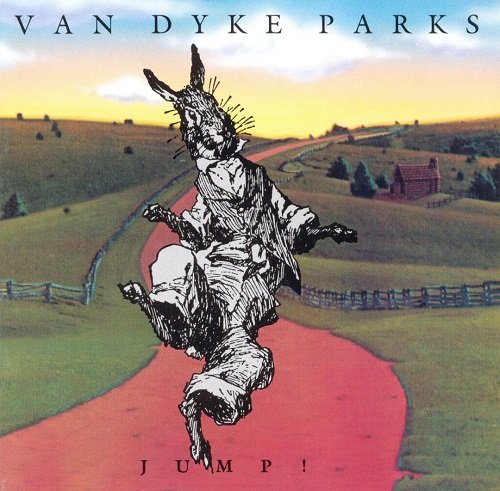
Artist: Van Dyke Parks
Title: Jump!
Year Of Release: 1984/1990
Label: Warner Bros. Records
Genre: Pop Rock, Art Pop, Baroque Pop, Experimental Pop, Easy Listening
Quality: Mp3 320 / Flac (tracks)
Total Time: 36:03
Total Size: 95/241 Mb
WebSite: Album Preview
Title: Jump!
Year Of Release: 1984/1990
Label: Warner Bros. Records
Genre: Pop Rock, Art Pop, Baroque Pop, Experimental Pop, Easy Listening
Quality: Mp3 320 / Flac (tracks)
Total Time: 36:03
Total Size: 95/241 Mb
WebSite: Album Preview
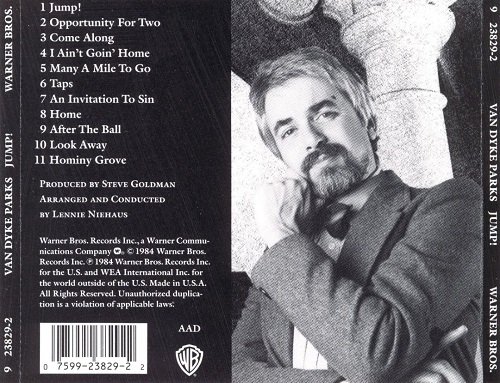
Tracklist:
01. Jump!
02. Opportunity for Two
03. Come Along
04. I Ain't Goin' Home
05. Many a Mile to Go
06. Taps
07. An Invitation to Sin
08. Home
09. After the Ball
10. Look Away
11. Hominy Grove
Line-up::
Backing Vocals – Jennifer Warnes
Bass – Jim Hughart
Cimbalom – Kenny Watson
Drums – Jim Keltner
Guitar, Banjo, Mandolin – Fred Tackett
Harmonica – Stanley Behrens, Tommy Morgan
Harp – Gayle Levant
Piano, Vocals – Van Dyke Parks
Producer – Steve Goldman
Steel Drums – Robert Greenidge
Vibraphone, Marimba, Bells, Timpani – Emil Richards
Vocals – Danny Hutton (tracks: 11), Kathy Dalton
In a field where the term "genius" is handed out freely, Van Dyke Parks is the real article. As a session musician, composer, arranger, lyricist, and singer, he's contributed significantly to several decades' worth of inimitable masterpieces credited to other artists, as well as generating two or three masterpieces of his own. Born in Hattiesburg, Mississippi, in 1941, he was a musical prodigy and attended the American Boychoir School in Princeton, New Jersey. He studied the clarinet and also worked as a child actor, on-stage and on television, co-starring with Ezio Pinza in the 1953 comedy series Bonino, and also working in movies, including Grace Kelly's final film, The Swan (1958).
Fifth Dimension He remained dedicated to music, however, and studied at the Carnegie Institute and majored in music at the University of Pennsylvania. In 1964, a year after graduating, he was signed to MGM Records as a recording artist, releasing "Come to the Sunshine," which had some local chart action in Phoenix, Arizona, and threatened to do something nationally without succeeding. (It did promise enough to require that Parks put together a band to back him on-stage, whose members included a young Stephen Stills.) He became a session musician and worked with Sonny & Cher (when they were "Anthony & Cleopatra"), as well as playing sessions for producer Terry Melcher on records by Paul Revere & the Raiders and other artists. On the Byrds' Fifth Dimension album he played the Hammond B-3 organ, and he also played keyboards on sessions for Judy Collins, and arranged songs for Tim Buckley.
SMiLE It was also Melcher who got Parks together in 1966 with Brian Wilson of the Beach Boys. A prodigiously gifted composer, Wilson was no lyricist, and he needed one who could match the daring new music he was devising in his head -- this resulted in their collaboration on the SMiLE album. Initially, only "Heroes and Villains" emerged from their work together as a modest hit single but a well-loved one, and the project languished over Wilson's worsening emotional and mental state in 1967. Fragments and pieces of the project turned up on ensuing albums into the early '70s, and Parks also played a key role in completing a song, "Sail on Sailor," that gave the Beach Boys a rare early-'70s single success. (In an early-'80s interview, incidentally, Parks said -- without blame or recriminations -- that he had never received a penny in royalties from his work with Wilson or the sales of the Beach Boys' records, a situation that was no doubt tied to the confusion surrounding the sale and ownership of their publishing, which was later nullified.)
Song Cycle In 1967, as work on SMiLE came to a halt, Parks was lured to the newly invigorated Warner Bros. label by producer/A&R chief Lenny Waronker. His new professional berth led to a single, "Donovan's Colours," credited to "George Washington Brown," and its response -- especially a pioneering piece of pop/rock criticism by journalist Richard Goldstein -- helped redefine "rock" as distinct from rock & roll. Parks and Waronker were responsible for transforming the Tikis into the pop/rock novelty act Harpers Bizarre, which became a new success for the label. Out of their work together, and all of these other projects -- and the creative stew that Waronker had set boiling at Warner Bros. and its new sister label, Reprise -- grew Parks' Song Cycle, a debut album that was the very definition of the word "eclectic," incorporating folk, classical, Broadway, ragtime, jazz, '50s pop, and rock & roll influences. It won the Record of the Year Award from High Fidelity/Stereo Review, and although it never sold in big numbers, the LP stayed in print for nearly two decades.
Discover America He then did session work with a variety of artists, not releasing his second album, Discover America, which revealed his immersion in Trinidadian music, until 1972. Clang of the Yankee Reaper, another eclectic collection, followed in 1976. But Parks maintained his "day job" -- film work on scores by Ry Cooder and others, writing and arranging for Shelley Duvall's children's TV series, and other pursuits. Finally, in 1984 came the brilliant Jump!, a concept album (and proposed stage musical) based on the Uncle Remus tales of Joel Chandler Harris. It was followed in 1989 by Tokyo Rose, which concerned the state of American-Japanese relations. In 1998, he released a live album, and in the next decade he collaborated anew with Brian Wilson, who finally released a finished realization of SMiLE with new recordings on the Nonesuch label in 2004. (By that time, however, dozens of unauthorized bootleg editions of tracks from the 1967 sessions had surfaced, to the delight of fans.)
That Lucky Old Sun Two years later, Parks began contributing lyrics to another Brian Wilson project, That Lucky Old Sun, as well as lending his arrangements to Silverchair's Young Modern (his second collaboration with the Australian band) and Inara George's An Invitation. Around this time Parks also worked on string arrangements for indie harpist Joanna Newsom's second album, Ys, among her most involved and ambitious work. In 2009, Parks appeared alongside Ry Cooder and Bob Dylan as part of the documentary The People Speak, a film that saw musicians scoring a series of letters, speeches, and diary entries from various unrelated sources. The next project to focus solely on Parks' music came in 2011 when he began issuing a series of 7" singles. There were six singles in total, featuring a wide variety of never before released material including new original songs, archival recordings, cover songs, and re-recordings of older material. The 12 songs from this project were eventually compiled and released in 2013 as the Songs Cycled album. In 2013, Parks also released Super Chief: Music for the Silver Screen, an orchestral concept album fashioned from music he had written for movies over the years; originally issued as a collector's item for Record Store Day 2013, the album received a wider release in 2014.
Fifth Dimension He remained dedicated to music, however, and studied at the Carnegie Institute and majored in music at the University of Pennsylvania. In 1964, a year after graduating, he was signed to MGM Records as a recording artist, releasing "Come to the Sunshine," which had some local chart action in Phoenix, Arizona, and threatened to do something nationally without succeeding. (It did promise enough to require that Parks put together a band to back him on-stage, whose members included a young Stephen Stills.) He became a session musician and worked with Sonny & Cher (when they were "Anthony & Cleopatra"), as well as playing sessions for producer Terry Melcher on records by Paul Revere & the Raiders and other artists. On the Byrds' Fifth Dimension album he played the Hammond B-3 organ, and he also played keyboards on sessions for Judy Collins, and arranged songs for Tim Buckley.
SMiLE It was also Melcher who got Parks together in 1966 with Brian Wilson of the Beach Boys. A prodigiously gifted composer, Wilson was no lyricist, and he needed one who could match the daring new music he was devising in his head -- this resulted in their collaboration on the SMiLE album. Initially, only "Heroes and Villains" emerged from their work together as a modest hit single but a well-loved one, and the project languished over Wilson's worsening emotional and mental state in 1967. Fragments and pieces of the project turned up on ensuing albums into the early '70s, and Parks also played a key role in completing a song, "Sail on Sailor," that gave the Beach Boys a rare early-'70s single success. (In an early-'80s interview, incidentally, Parks said -- without blame or recriminations -- that he had never received a penny in royalties from his work with Wilson or the sales of the Beach Boys' records, a situation that was no doubt tied to the confusion surrounding the sale and ownership of their publishing, which was later nullified.)
Song Cycle In 1967, as work on SMiLE came to a halt, Parks was lured to the newly invigorated Warner Bros. label by producer/A&R chief Lenny Waronker. His new professional berth led to a single, "Donovan's Colours," credited to "George Washington Brown," and its response -- especially a pioneering piece of pop/rock criticism by journalist Richard Goldstein -- helped redefine "rock" as distinct from rock & roll. Parks and Waronker were responsible for transforming the Tikis into the pop/rock novelty act Harpers Bizarre, which became a new success for the label. Out of their work together, and all of these other projects -- and the creative stew that Waronker had set boiling at Warner Bros. and its new sister label, Reprise -- grew Parks' Song Cycle, a debut album that was the very definition of the word "eclectic," incorporating folk, classical, Broadway, ragtime, jazz, '50s pop, and rock & roll influences. It won the Record of the Year Award from High Fidelity/Stereo Review, and although it never sold in big numbers, the LP stayed in print for nearly two decades.
Discover America He then did session work with a variety of artists, not releasing his second album, Discover America, which revealed his immersion in Trinidadian music, until 1972. Clang of the Yankee Reaper, another eclectic collection, followed in 1976. But Parks maintained his "day job" -- film work on scores by Ry Cooder and others, writing and arranging for Shelley Duvall's children's TV series, and other pursuits. Finally, in 1984 came the brilliant Jump!, a concept album (and proposed stage musical) based on the Uncle Remus tales of Joel Chandler Harris. It was followed in 1989 by Tokyo Rose, which concerned the state of American-Japanese relations. In 1998, he released a live album, and in the next decade he collaborated anew with Brian Wilson, who finally released a finished realization of SMiLE with new recordings on the Nonesuch label in 2004. (By that time, however, dozens of unauthorized bootleg editions of tracks from the 1967 sessions had surfaced, to the delight of fans.)
That Lucky Old Sun Two years later, Parks began contributing lyrics to another Brian Wilson project, That Lucky Old Sun, as well as lending his arrangements to Silverchair's Young Modern (his second collaboration with the Australian band) and Inara George's An Invitation. Around this time Parks also worked on string arrangements for indie harpist Joanna Newsom's second album, Ys, among her most involved and ambitious work. In 2009, Parks appeared alongside Ry Cooder and Bob Dylan as part of the documentary The People Speak, a film that saw musicians scoring a series of letters, speeches, and diary entries from various unrelated sources. The next project to focus solely on Parks' music came in 2011 when he began issuing a series of 7" singles. There were six singles in total, featuring a wide variety of never before released material including new original songs, archival recordings, cover songs, and re-recordings of older material. The 12 songs from this project were eventually compiled and released in 2013 as the Songs Cycled album. In 2013, Parks also released Super Chief: Music for the Silver Screen, an orchestral concept album fashioned from music he had written for movies over the years; originally issued as a collector's item for Record Store Day 2013, the album received a wider release in 2014.
![Ex Novo Ensemble - OSVALDO COLUCCINO: Emblema (2018) [Hi-Res] Ex Novo Ensemble - OSVALDO COLUCCINO: Emblema (2018) [Hi-Res]](https://img.israbox.com/img/2026-02/22/ot6pocjri3hisq06iz4768yl5.jpg)
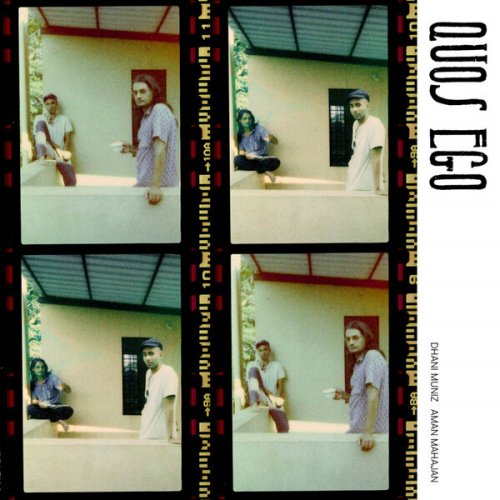

![Ragini Trio - 3 (2026) [Hi-Res] Ragini Trio - 3 (2026) [Hi-Res]](https://img.israbox.com/img/2026-02/19/uoki2dxo3dfz215xa2kz53gcp.jpg)
